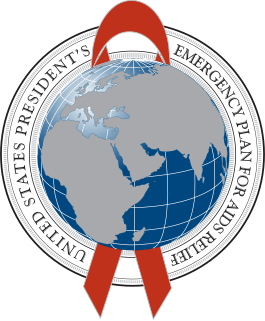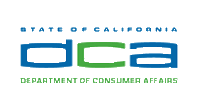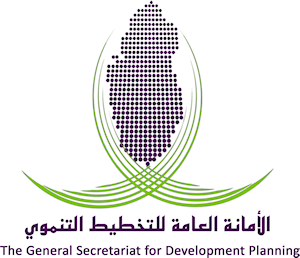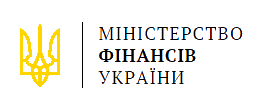The Intergovernmental Oceanographic Commission of UNESCO (IOC/UNESCO) was established by resolution 2.31 adopted by the General Conference of UNESCO. It first met in Paris at Unesco Headquarters from 19 to 27 October 1961. Initially, 40 States became members of the Commission. The IOC assists governments to address their individual and collective ocean and coastal management needs, through the sharing of knowledge, information and technology as well as through the co-ordination of programs and building capacity in ocean and coastal research, observations and services.

The President's Emergency Plan For AIDS Relief (PEPFAR) is a United States governmental initiative to address the global HIV/AIDS epidemic and help save the lives of those suffering from the disease. Launched by U.S. President George W. Bush in 2003, as of May 2020, PEPFAR has provided about $90 billion in cumulative funding for HIV/AIDS treatment, prevention, and research since its inception, making it the largest global health program focused on a single disease in history until the Covid-19 crisis. PEPFAR is implemented by a combination of U.S. government agencies in over 50 countries and overseen by the Global AIDS Coordinator at the U.S. Department of State. As of September 30, 2019, PEPFAR has saved over 19 million lives, primarily in Sub-Saharan Africa.

Capacity building is the process by which individuals and organizations obtain, improve, and retain the skills, knowledge, tools, equipment, and other resources needed to do their jobs competently. It allows individuals and organizations to perform at a greater capacity. "Capacity building" and "Capacity development" are often used interchangeably. This term indexes a series of initiatives from the 1950s in which the active participation of local communities’ members in social and economic development was encouraged via national and subnational plans. The United Nations Sustainable Development Goal 17 advocates for enhanced international support for capacity building in developing countries to support support national plans to implement the 2030 Agenda.

The civil service in Malaysia is pivotal around Article 132 of the Constitution of Malaysia which stipulates that the public services shall consist of the Federal and State General Public Service, the Joint Public Services, the Education Service, the Judiciary and the Legal Service and the Armed Forces.

Environmental Protection Department (EPD) is a department of Hong Kong Government concerning the issues of environmental protection in Hong Kong.

The California Department of Consumer Affairs (DCA) is a department within the California Business, Consumer Services, and Housing Agency. DCA's stated mission is to serve the interests of California's consumers by ensuring a standard of professionalism in key industries and promoting informed consumer practices. The DCA provides the public with information on safe consumer practices, in an effort to protect the public from unscrupulous or unqualified people who promote deceptive products or services.
The Ministry of Panchayati Raj is a branch of the Government of India.
The Marine Institute is a State agency in Ireland that provides government, public agencies and the maritime industry with a range of scientific, advisory and economic development services, aiming to inform policy-making, regulation and the sustainable management and growth of the country’s marine resources. Founded in 1991 on foot of a 1974 report, the Institute undertakes, coordinates and promotes marine research and development, which is essential to achieving a sustainable ocean economy, protecting ecosystems and inspiring a shared understanding of the ocean. The agency is governed by a ministerially-appointed board and has a professional staff, a headquarters near Galway, an office in Dublin, and two research vessels.
E-government began in South Korea in the 1980s when the Ministry of Government Administration and Home Affairs (MOGAHA) began to implement ICT within government, based on the "National Backbone Computer Network" consisting of five national networks. An Information Super-Highway was launched in 1993, followed by the creation of the Ministry of Information and Communication (MIC). Public access to government information services began to move online in the late 1990s; and a drive for "Participatory Government" gave further impetus for e-government after 2002, led by the 2003 "E-Government Roadmap" which sets a number of specific targets.

The Ministry of Finance, Planning and Economic Development (MoFPED) is a cabinet-level government ministry of Uganda. Its mandate is to formulate sound economic and fiscal policies, mobilize resources for the implementation of government programmes, disburse public resources as appropriated by Parliament, and account for their use in accordance with national laws and international best practices. The cabinet minister of finance is Matia Kasaija. MoFPED was created by the 1995 Constitution of Uganda and derives its power from the Constitution and related acts of parliament, including the 2001 Budget Act and the 2003 Public Finance and Accountability Act.

The Center for Adaptation of the Civil Service to the Standards of the European Union was established under the National Agency of Ukraine on Civil Service in order to provide informational and analytical, expert and organizational support to public administration development, strengthening of institutional capacity of the civil service of Ukraine and its adaptation to the standards of the European Union.

The General Secretariat for Development Planning (GSDP) is a governmental agency in the State of Qatar, established through an Emiri Decision No (39) in 2006 and amended by Emiri Decision No (50) in 2009. The GSDP coordinates plans, strategies and policies in support of Qatar's National Vision 2030.
All European countries show eGovernment initiatives, mainly related to the improvement of governance at the national level. Significant eGovernment activities also take place at the European Commission level as well. There is an extensive list of eGovernment Fact Sheets maintained by the European Commission.

The Ministry of Finance of Ukraine is a central executive agency in Ukraine charged with developing and implementing national financial and budget policies, and with defining national policies in customs and taxation. The ministry is responsible for ensuring that the state has enough resources to perform its functions and that financial policies promote economic growth.
The Centre for Public Policy is an Indian policy think tank engaged in research, training, teaching and capacity building. CPP is an initiative undertaken by the Indian Institute of Management Bangalore (IIMB) and is located within the IIMB's campus.
The Office of the Assistant Secretary for Planning and Evaluation (ASPE) is the principal advisory group to the United States Secretary of the Department of Health and Human Services (HHS) on policy development and provides coordination and support for HHS's strategic and policy planning, planning and development of legislation, program evaluation, data gathering, policy-related research, and regulatory program. ASPE refers both to the position, the Assistant Secretary for Planning and Evaluation, and the office directed by that position. Since its authorization in 1965, ASPE has played an instrumental role as an internal strategy group, think tank, and incubator supporting the priorities and needs of the Secretary, and consequently, the Department as a whole.
Climate change education (CCE) is education that aims to address and develop effective responses to climate change. It helps learners understand the causes and consequences of climate change, prepares them to live with the impacts of climate change and empowers learners to take appropriate actions to adopt more sustainable lifestyles.

Educational management refers to the administration of the education system in which a group combines human and material resources to supervise, plan, strategise, and implement structures to execute an education system. Education is the equipping of knowledge, skills, values, beliefs, habits, and attitudes with learning experiences. The education system is an ecosystem of professionals in educational institutions, such as government ministries, unions, statutory boards, agencies, and schools. The education system consists of political heads, principals, teaching staff, non-teaching staff, administrative personnel and other educational professionals working together to enrich and enhance. At all levels of the educational ecosystem, management is required; management involves the planning, organising, implementation, review, evaluation, and integration of an institution.
The Centre for Socio-economic and Environmental Studies (CSES), founded in 1996, is an independent, non-profit, research institute based at Kochi, Kerala, India.









